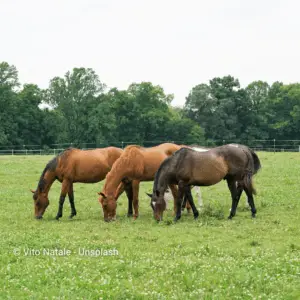
Enrichments for Horses That Can’t Be Ridden
How To Aviod Boredom Enrichments for horses that can’t be ridden can be an important
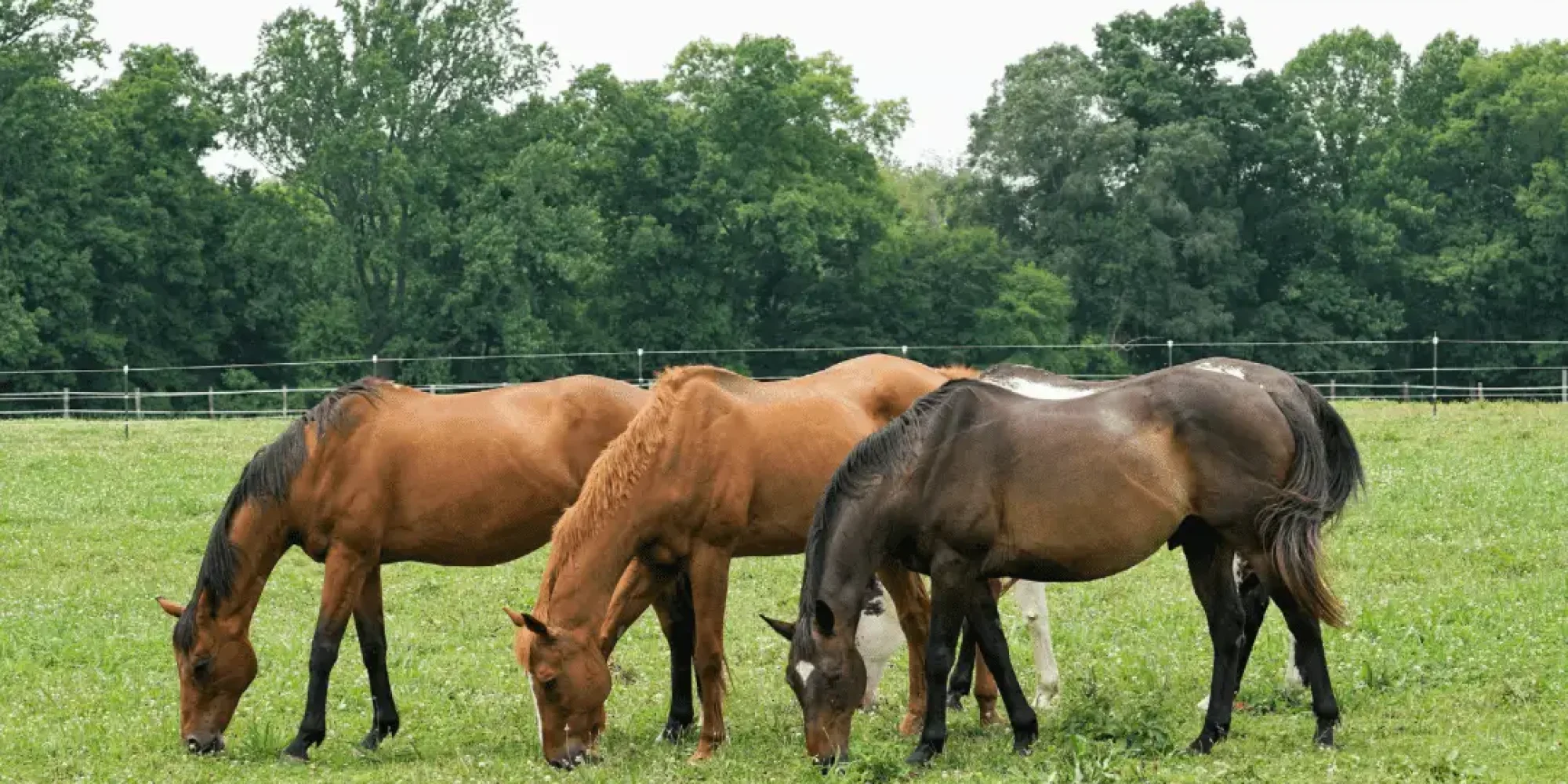
How To Aviod Boredom
Enrichments for horses that can’t be ridden can be an important aspect of their overall care and well-being. These horses, whether they are seniors, on box rest, or youngsters, still require mental and physical stimulation to keep them healthy and happy and avoid behavioral issues.
One form of enrichment that should be offered to every horse, with the exception of injured horses on box rest, is turnout. Turnout allows horses to move around and graze, which can help to reduce boredom and stress. For seniors, turnout can also help to maintain muscle tone and overall fitness. However, it is important to ensure that the turnout area is safe and free of hazards, such as uneven ground or sharp objects.
Adding to this, Horses are herd animals and for their mental well being companionship is extremely important. It can help to reduce stress and promote socialization. In the best case, your horse is provided with companionship through several other horses and is able to socialize with fellow members of their species. The second best option would be to offer your Horses companionship through other animals such as donkeys, mules, goats or sheep.
One form of indoor enrichment is the use of a scratching mat or old broom head. These items can help horses to relieve itching by scratching bodyparts that they may not be able to reach on their own. The act of scratching can help to reduce stress in horses.
Another form of indoor enrichment is the use of music. Playing music to your horse can provide them with new and unusual sounds and get it used to them. Studies have shown that listening to classical music can even lower a horse’s heart rate, which can have a calming effect on the animal.
Providing toys or other items for the horse to interact with can also keep your horse mentally and physically engaged. These can include balls, blocks, or even a small pool to splash in. There are also lots of toys that can be associated with food, such as a hay ball or play ropes to nibble on. These items can provide both physical and mental stimulation for the horse. Additionally, these items can help to break up the monotony of being confined to a stall or small paddock. This is especially important for horses on box rest or with only little turnout time.
It is important to provide young horses with opportunities to learn and explore. Besides turnout, this can be done through the use of obstacle courses or other training exercises. Going on walks together and playing together in the arena or a fenced area, learning how to communicate with each other can be used for enrichment as well. These activities also deepen the bond between you and your horse. They can also help to develop coordination, balance, and confidence in the horse. Furthermore, enrichment activities like these can also help to prevent the development of behavioral issues.
A few other forms of enrichment can be extensive grooming with different types of brushes, clicker training, the introduction of new scents or food-searching games.
It is important to introduce horses to enrichment items slowly and watch their response closely to avoid overwhelming or frustrating them. Some horses might take longer than others when it comes to problem solving. Always move at your horse’s pace and if any problems occur talk with a professional, such as your trainer or veterinarian.
Download the Happie Horse App and receive a 7-Day free trial to test all the Premium features!

How To Aviod Boredom Enrichments for horses that can’t be ridden can be an important

Rewarding Your Horse With a Clicker Clicker training is a modern training method that has
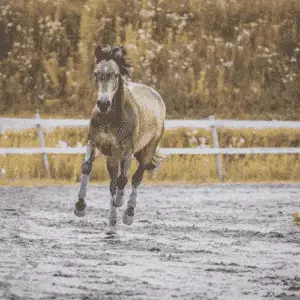
Constant Free Movement in Herds Can Help Against Obesity We always talk about how feed
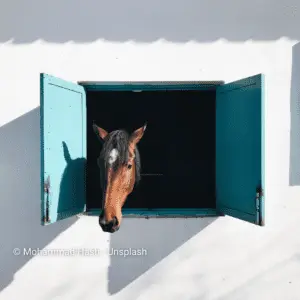
How to Avoid Boredom in the Stable Stable enrichments are important since they provide mental

It’s stubble field season! As a rider, there’s almost nothing better than galloping across the
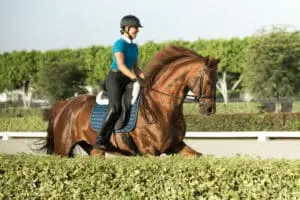
“Straighten your horse!”—every rider has probably heard this phrase from their instructor at least once.